
-
 Why SpaceX IPO plan is generating so much buzz
Why SpaceX IPO plan is generating so much buzz
-
Thailand continues Cambodia strikes despite Trump truce calls

-
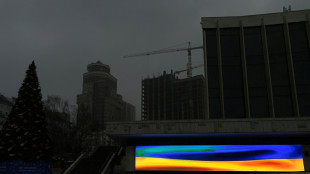 US envoy to meet Zelensky, Europe leaders in Berlin this weekend
US envoy to meet Zelensky, Europe leaders in Berlin this weekend
-
North Korea acknowledges its troops cleared mines for Russia
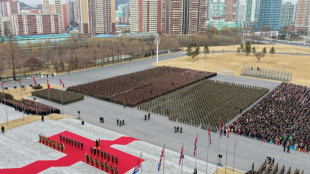
-
 US unseals warrant for tanker seized off Venezuelan coast
US unseals warrant for tanker seized off Venezuelan coast
-
Cambodia says Thailand still bombing hours after Trump truce call
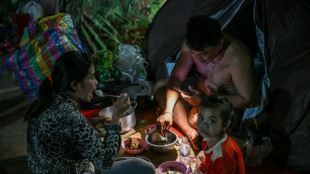
-
 Machado urges pressure so Maduro understands 'he has to go'
Machado urges pressure so Maduro understands 'he has to go'
-
Best Gold Investment Companies in USA Announced (Augusta Precious Metals, Lear Capital, Robinhood IRA and More Ranked)

-
 Leinster stutter before beating Leicester in Champions Cup
Leinster stutter before beating Leicester in Champions Cup
-
World stocks mostly slide, consolidating Fed-fuelled gains
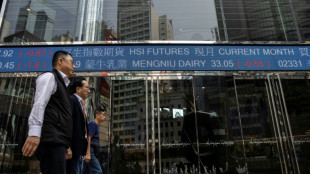
-
 Crypto firm Tether bids for Juventus, is quickly rebuffed
Crypto firm Tether bids for Juventus, is quickly rebuffed
-
Union sink second-placed Leipzig to climb in Bundesliga

-
 US Treasury lifts sanctions on Brazil Supreme Court justice
US Treasury lifts sanctions on Brazil Supreme Court justice
-
UK king shares 'good news' that cancer treatment will be reduced in 2026
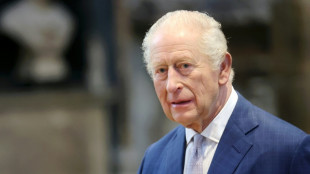
-
 Wembanyama expected to return for Spurs in NBA Cup clash with Thunder
Wembanyama expected to return for Spurs in NBA Cup clash with Thunder
-
Five takeaways from Luigi Mangione evidence hearings
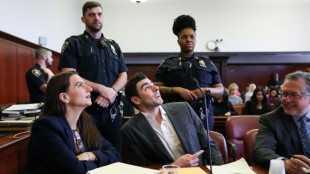
-
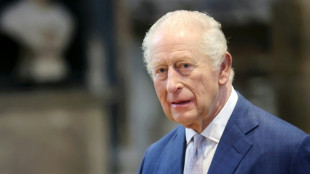 UK's king shares 'good news' that cancer treatment will be reduced in 2026
UK's king shares 'good news' that cancer treatment will be reduced in 2026
-
Steelers' Watt undergoes surgery to repair collapsed lung

-
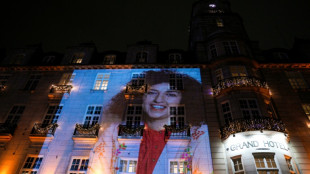 Iran detains Nobel-prize winner in 'brutal' arrest
Iran detains Nobel-prize winner in 'brutal' arrest
-
NBA Cup goes from 'outside the box' idea to smash hit

-
 UK health service battles 'super flu' outbreak
UK health service battles 'super flu' outbreak
-
Can Venezuela survive US targeting its oil tankers?

-
 Democrats release new cache of Epstein photos
Democrats release new cache of Epstein photos
-
Colombia's ELN guerrillas place communities in lockdown citing Trump 'intervention' threats

-
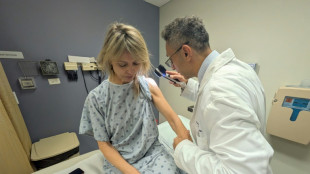 'Don't use them': Tanning beds triple skin cancer risk, study finds
'Don't use them': Tanning beds triple skin cancer risk, study finds
-
Nancy aims to restore Celtic faith with Scottish League Cup final win

-
 Argentina fly-half Albornoz signs for Toulon until 2030
Argentina fly-half Albornoz signs for Toulon until 2030
-
Trump says Thailand, Cambodia have agreed to stop border clashes
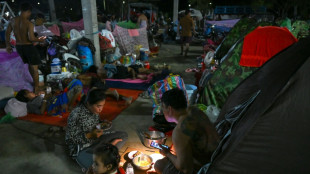
-
 Salah in Liverpool squad for Brighton after Slot talks - reports
Salah in Liverpool squad for Brighton after Slot talks - reports
-
Marseille coach tips Greenwood as 'potential Ballon d'Or'

-
 Draw marks 'starting gun' toward 2026 World Cup, Vancouver says
Draw marks 'starting gun' toward 2026 World Cup, Vancouver says
-
Thai PM says asked Trump to press Cambodia on border truce

-
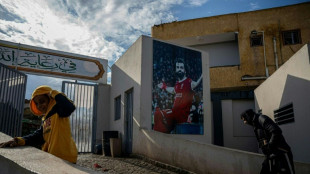 Salah admired from afar in his Egypt home village as club tensions swirl
Salah admired from afar in his Egypt home village as club tensions swirl
-
World stocks retrench, consolidating Fed-fuelled gains
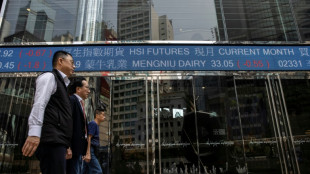
-
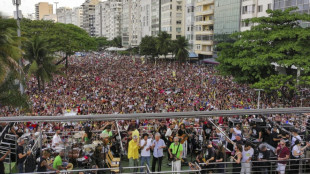 Brazil left calls protests over bid to cut Bolsonaro jail time
Brazil left calls protests over bid to cut Bolsonaro jail time
-
Trump attack on Europe migration 'disaster' masks toughening policies

-
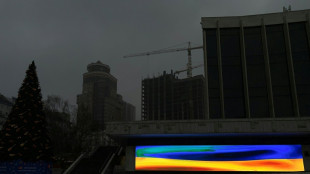 US plan sees Ukraine joining EU in 2027, official tells AFP
US plan sees Ukraine joining EU in 2027, official tells AFP
-
'Chilling effect': Israel reforms raise press freedom fears

-
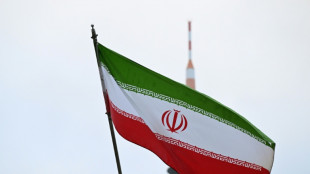 Iran frees child bride sentenced to death over husband's killing: activists
Iran frees child bride sentenced to death over husband's killing: activists
-
No doubting Man City boss Guardiola's passion says Toure

-
 Youthful La Rochelle name teen captain for Champions Cup match in South Africa
Youthful La Rochelle name teen captain for Champions Cup match in South Africa
-
World stocks consolidate Fed-fuelled gains
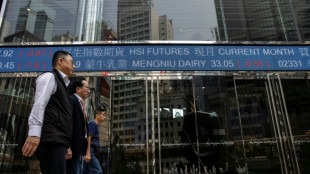
-
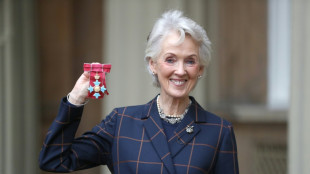 British 'Aga saga' author Joanna Trollope dies aged 82
British 'Aga saga' author Joanna Trollope dies aged 82
-
Man Utd sweat on Africa Cup of Nations trio

-
 EU agrees three-euro small parcel tax to tackle China flood
EU agrees three-euro small parcel tax to tackle China flood
-
Taylor Swift breaks down in Eras documentary over Southport attack

-
 Maresca 'relaxed' about Chelsea's rough patch
Maresca 'relaxed' about Chelsea's rough patch
-
France updates net-zero plan, with fossil fuel phaseout
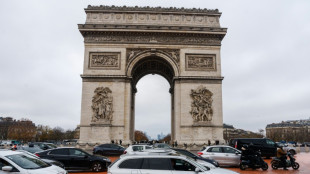
-
 Nowhere to pray as logs choke flood-hit Indonesian mosque
Nowhere to pray as logs choke flood-hit Indonesian mosque
-
In Pakistan, 'Eternal Love' has no place on YouTube


Sydney's former HIV epicentre close to ending transmission
The inner-city area of Sydney, once the epicentre of Australia's HIV epidemic, is very close to becoming the first place in the world to reach the UN's target for ending transmission of the virus, researchers said on Monday.
UNAIDS has set a goal of ending AIDS as a global health threat by 2030, which includes reducing the number of new HIV cases by 90 percent compared to 2010.
In inner Sydney, new infections among gay men dropped by 88 percent from 2010 to 2022, researchers announced at the International AIDS Society's HIV science conference being held in the Australian city of Brisbane.
Andrew Grulich, an epidemiologist at the University of New South Wales who presented the research, told AFP that "we're very nearly there" some eight years ahead of the 2030 target.
Just 11 new HIV cases were recorded in inner Sydney last year, "an extraordinarily small number of infections for what was the heart of the Australian HIV epidemic," Grulich said.
Gay men make up an estimated 20 percent of the male population in inner Sydney, and they represent the large majority of the city's HIV cases.
Grulich said that several areas in the UK and Western Europe have also seen rapid drops in new HIV cases.
But "I don't think anywhere has gotten close to 90 percent," he added.
However Grulich emphasised that this does not mean that HIV is close to being eliminated in the city of more than 5.2 million people.
"HIV can only be eliminated if we have a vaccine and a cure," he said.
And the fall in new HIV cases was far less precipitous in other parts of Sydney.
In the city's outer suburbs, new cases have only fallen by 31 percent since 2010, the researchers found.
This disparity was due to a much higher rate of HIV testing and use of pre-exposure prophylaxis (PrEP) -- which reduces the risk of transmitting HIV during sex -- in the inner city, Grulich said.
He said another cause for progress was that around 95 percent of HIV-positive people in Australia are now on antiretroviral treatment, which suppresses the level of the virus in the blood.
Another study announced at the AIDS conference, which was published in The Lancet journal, said that people on antiretrovirals who have low but detectable levels of HIV have almost zero risk of sexually transmitting the virus to others.
- 'Beyond exciting' -
Sharon Lewin, the president of the International AIDS Society, said the progress in inner Sydney was "beyond exciting".
"It affirms that Australia is poised to be one of the first countries, if not the first, to achieve virtual elimination of HIV," she said in a statement.
Heather Ellis, a woman living with HIV in the southern state of Victoria, said that "the last mile" of eliminating HIV in Australia will require measures specifically designed to reach women.
While gay men are now well aware of prevention tools like PrEP, "the heterosexual community is pretty much oblivious," said Ellis, a communications coordinator for the NGO Positive Women Victoria.
The Sydney research, which has not been peer-reviewed, was based on data from the New South Wales health department as well as annual surveys taken by gay men.
Grulich said the progress in inner Sydney was particularly significant because "this was a community that was completely devastated in the 80s and 90s -- a few thousand men died in these areas".
X.Karnes--AMWN

